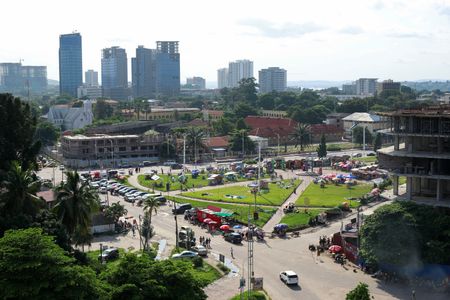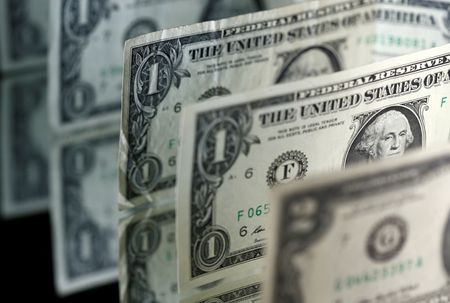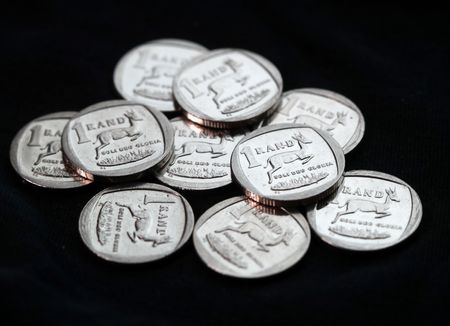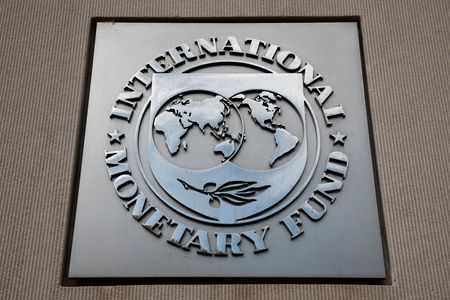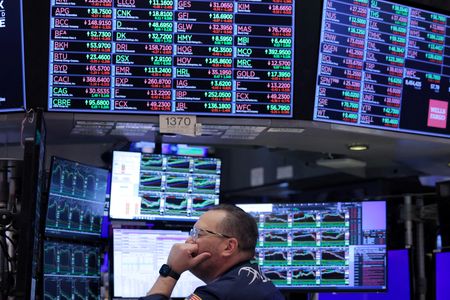By Daphne Psaledakis, Jessica Donati and Sonia Rolley
WASHINGTON/DAKAR/PARIS (Reuters) -Democratic Republic of Congo and Rwanda will not sign an economic framework this week as expected, four sources familiar with the matter told Reuters on Friday, in another stumbling block for the Trump administration’s efforts to implement a peace deal and spur Western investment in the region.
President Donald Trump is pursuing an ambitious bid to broker peace and draw billions of dollars of Western investment to a region rich in tantalum, gold, cobalt, copper, lithium and other minerals after Rwanda-backed M23 rebels seized two major cities in eastern Congo in January and February, posing the biggest threat to the government in Kinshasa in two decades.
Though he says the war is over, the peace agreement reached in Washington in June has faced setbacks and Congo’s army and M23 rebels are reinforcing military positions and blaming each other for going back on various agreements.
Congo and Rwanda, which denies supporting M23, were expected to initial an agreement known as the Regional Economic Integration Framework (REIF) this week after a final round of negotiations in Washington.
But a Rwandan official said that while the text was finalized, negotiations concluded without any initialing after Kinshasa was unwilling to sign.
The official and other sources spoke to Reuters on condition of anonymity to discuss sensitive, ongoing diplomacy.
A second source familiar with the matter said Congo would not sign the economic framework until 90% of Rwandan troops withdraw from eastern Congo. The withdrawal of Rwandan troops is part of a wider peace deal mediated by Washington that the countries signed in June.
“They’re going to have to get Trump on the phone,” the source said.
US AIMS TO GET TALKS BACK ON TRACK
The U.S. is trying to get the process back on track, the Rwandan official said, but the initialing was not expected to take place on Friday.
“The negotiating teams had finalized the text of the REIF agreement but disappointingly, Kinshasa decided at the last minute not to initial it,” the Rwandan official said.
“We believe in this agreement and in the approach of the US mediation, and hope that the economic agreement will eventually be signed. The peace process must succeed,” the official added.
Congo, Rwanda and the U.S. State Department did not immediately respond to requests for comment.
“The agreement has been finalized but the Congolese had never made any secret of the fact that they would not sign as long as the Rwandan army remained on their territory. So for us, it is not a surprise,” an African diplomat said.
The Congolese and Rwandan foreign ministers on June 27 signed a peace deal in Washington, which included a pledge to implement a 2024 agreement that said Rwanda would lift its defensive measures in eastern Congo within 90 days.
Congolese military operations targeting the FDLR, a Congo-based armed group that includes remnants of Rwanda’s former army and militias that carried out the 1994 genocide, are meant to conclude over the same timeframe.
Reuters reported last month that Rwanda and Congo would begin implementing the security measures agreed under the deal on October 1, despite the initial agreement’s 90-day deadline.
Rwanda has sent at least 7,000 soldiers over the border, according to analysts and diplomats, in support of the M23 rebels.
Kinshasa and Kigali were also meant to launch the regional economic integration framework within 90 days, the Washington agreement said. The 90-day deadline fell at the end of September.
Two sources familiar with the matter said that Trump’s senior advisor for Africa, Massad Boulos, had hoped that the economic framework and other agreements would be signed by heads of state on a visit to Washington by October 23.
According to an earlier draft of the deal reported by Reuters last month, Rwanda and Congo were set to commit to work with third parties, including the U.S., to revamp their mineral supply chains and develop reforms.
Rwanda and Congo had agreed to the draft, which was then discussed by stakeholders, including the private sector, multilateral banks and others, before meeting this week for the final round of negotiations.
(Reporting by Daphne Psaledakis in Washington, Jessica Donati in Dakar, Sonia Rolley in Paris and Ange Kasongo in Kinshasa; Editing by Robbie Corey-Boulet and Daniel Wallis)

